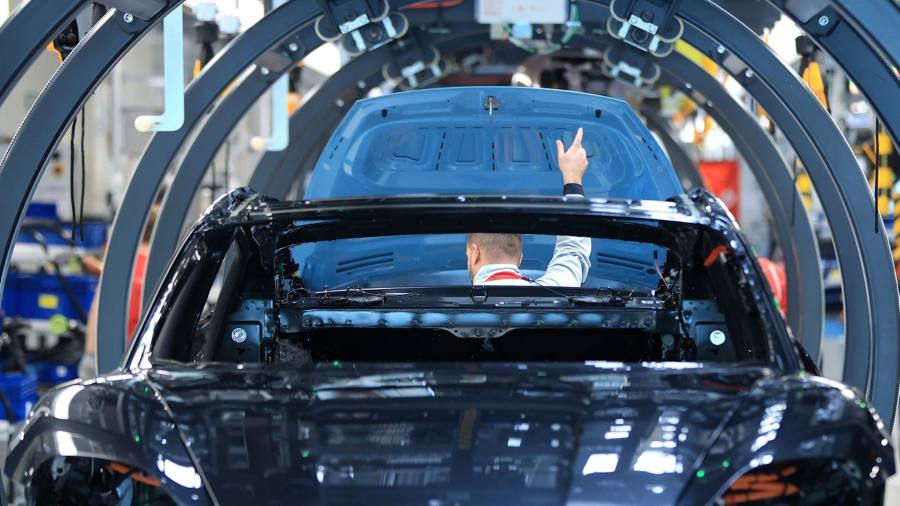
There’s nothing to liven things up like a good old transatlantic trade war, or at least some warlike words about trade. Throw in a global energy shock and a geopolitical clash of superpowers, and local requirements for tax credits for electric vehicles have never been such a crucible of conflict.
In some of the more hot-headed quarters of the EU, the dispute with Washington has metastasised into resentment over US companies charging Europe higher energy prices, thus adding to European industry’s incentives to move to America. French president Emmanuel Macron will have a chance to make this point during his state visit to the US this week.
The energy price accusations are generally illogical or overblown, and the electric vehicle issue is reasonably easy to fix. The bigger issue is President Joe Biden’s Inflation Reduction Act, setting the US down a path of heavy subsidies that the EU will struggle to follow and which is imperfectly fenced in by weak trade law.
First, the idea of Washington consciously creating an energy cost differential with the EU that poaches European investment is a big stretch. The US doesn’t control its energy companies’ pricing, and it is hardly its fault that the EU left itself so dependent on piped Russian gas. There’s a dark irony here: in 2018, the EU gulled Donald Trump into dropping a plan to impose tariffs on European cars with specious promises of importing American liquefied natural gas. Had those pledges been real rather than tactical, Europe would now be in a better place.
On the electric cars issue, the tax credits attract outsized attention because as consumer subsidies dependent on local production, they’re so obviously against World Trade Organization law. However, there’s also considerable wriggle room for the complainants — the EU, Japan and South Korea — to avoid discrimination. Those three were never realistically going to get their car exports access to the tax credit, but as the Financial Times has reported, the legislation can be tweaked by smart lobbying. In the last instance, if affected companies have their own manufacturing operations in the US, they can lobby local senators and congressmen to ask the administration for exemptions for exports from their home base.
And as for the US poaching investment from Europe — Simon Evenett of the monitoring service Global Trade Alert notes that inward flows of foreign direct investment reward regulatory stability more than tax incentives.
More worrying for the EU are the handouts in other parts of the act, such as subsidies for production of clean hydrogen. These are harder to get public opinion riled up about. Hydrogen isn’t as symbolic as cars, and the subsidies only contravene WTO rules if they can be proved to damage European producers.
Underlying this tension is a fundamental difference in approach and competencies. Crudely speaking, the EU has rules and the US has cash. Europe’s approach to decarbonisation was initially to change relative prices through its emissions trading scheme, now buttressed by a planned carbon border adjustment mechanism painstakingly drafted to adhere to WTO rules. Having failed to create its own cap-and-trade scheme, the US has gone instead for shovelling out hundreds of billions in subsidies and incentives without caring overmuch about trade law.
The two trade behemoths also have contrasting priorities. The US is focused on besting China and as such regards green investment as an issue of overwhelming national security importance, the same attitude that animates its export controls on semiconductors. The EU is more concerned with decarbonising its economy and trying to catch up in green technology.
True, the EU has its own green investment funds, but they don’t match those of the US for direct production subsidies. Moreover, having been hit much harder by the energy shock, the EU has other worries. The think-tank Bruegel estimates EU governments have announced a total of €600bn in payments to consumers to cushion them from energy price rises, more than the entire US spending on energy and climate change in the IRA.
Unless the EU manages to come up with hundreds of billions more for investment, there’s no neat and amicable conclusion to the transatlantic tension over cash versus rules. It’s likely to be something that needs to be managed rather than resolved. It’s certainly better than no money being spent on green technology and no prices being imposed on carbon at all, but having one trade superpower focusing on each is surely not the best way of doing it.